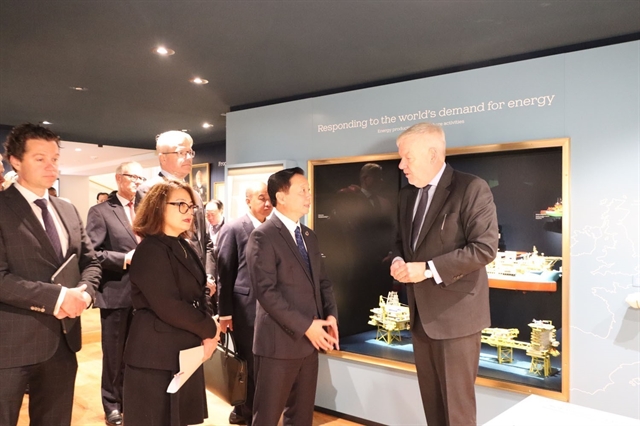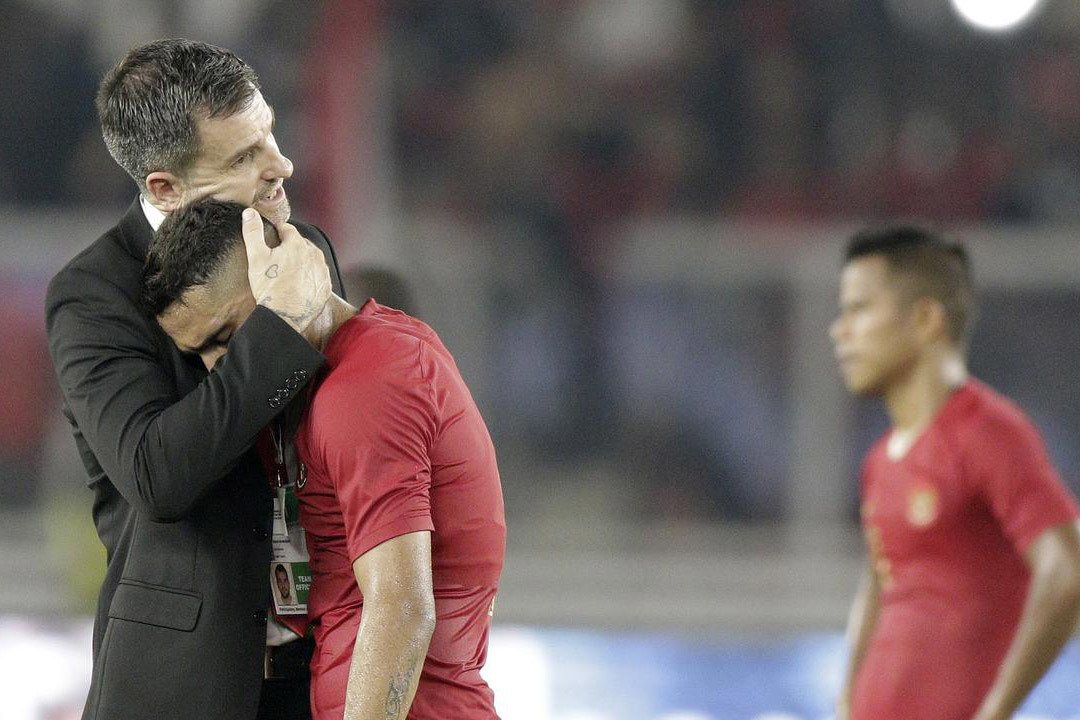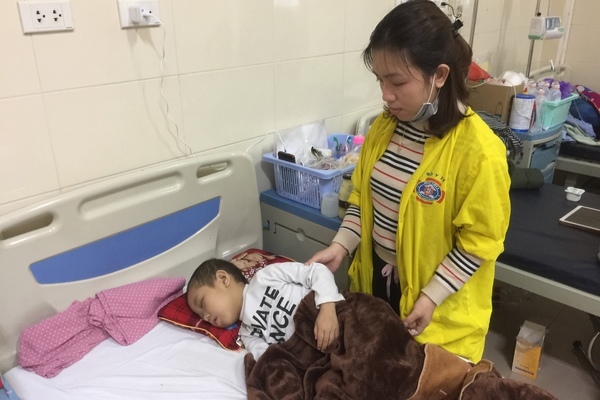Việt Nam, Denmark share vision on clean, sustainable energy_kết quả mumbai city
Việt Nam,kết quả mumbai city Denmark share vision on clean, sustainable energy
November 26, 2024 - 13:51
 |
| Deputy Prime Minister Trần Hồng Hà visits Maersk's exhibition room and learns about a model of a container ship powered by bio-methanol fuel. VNA/VNS Photoo |
COPENHAGEN - As part of his working visit to Denmark, Deputy Prime Minister Trần Hồng Hà on November 25 met with leaders of the host country's leading groups and attended a roundtable with several Danish businesses to discuss cooperation opportunities in clean and sustainable energy.
At the headquarters of the world’s leading container shipping company A.P. Moller-Maersk, Hà and its CEO Vincent Clerc discussed opportunities for collaboration to promote the sustainable development of the maritime transport sector in Việt Nam.
With its history of over-100-year presence in Việt Nam, Maersk values the development potential of this market, and hopes to make a positive contribution to the country's industrialisation and modernisation process, the official said, adding that Việt Nam is a promising market with many attractive investment opportunities, particularly in the construction of modern deep-water container ports and strategic logistics projects.
He also emphasised the company's strong commitment to developing green shipping, with the goal of achieving net-zero greenhouse gas emissions by 2040, adding that Maersk is actively investing in new technologies, utilising renewable energy sources, and enhancing automation to improve operational efficiency and protect the environment.
Appreciating Maersk's efforts in transforming its business model towards sustainability and green practices, Ha said that the company’s development strategy aligns with Việt Nam’s direction of building a green, sustainable, and smart marine economy. He expressed a desire to collaborate with Maersk to develop modern and smart ports to enhance the competitiveness of the national economy.
Both sides had in-depth discussions on specific cooperation opportunities. Maersk representatives showed their interest in investing in green energy projects in Việt Nam, including researching and developing green fuel sources such as hydrogen and ammonia, as well as building energy infrastructure to support green ports and vessels. They also committed to expanding the company's investment in the logistics sector, and focusing on developing a multimodal transport system that effectively connects various transport modes such as rail, inland waterways, and coastal shipping.
In a meeting with the Confederation of Danish Industry (DI), both sides focused on new cooperation opportunities, particularly in the fields of renewable energy and digital transformation, to promote the economic partnership between the two countries.
The Vietnamese Deputy PM emphasised that bilateral cooperation has achieved significant milestones, reflected through the increasing presence of Danish businesses in Việt Nam, with total investments reaching US$2 billion. He appreciated Denmark's development model, especially its transition from a resource-based economy to a knowledge-based one.
Representatives of the Danish companies attending the roundtable expressed their interest in investing in renewable energy projects in Việt Nam, particularly offshore wind power. Vietnamese companies such as the Việt Nam Oil and Gas Group (PetroViệt Nam), the Việt Nam Electricity (EVN), and the Việt Nam Maritime Corporation also showed their desire to collaborate with Danish partners to implement these projects.
Ha affirmed that Việt Nam will continue to improve its investment and business environment, perfect the legal framework, and create favourable conditions for businesses. He said he believes that with the joint efforts of both sides, the Việt Nam-Denmark cooperation will continue to grow stronger in the coming time.
The same day, Deputy PM Hà had a meeting with Christina Sørensen, Senior Partner of the C.I.P Group, one of the world’s leading offshore wind developers. They discussed cooperation opportunities to develop renewable energy sources in Việt Nam, particularly offshore wind power.
Saying that in Việt Nam, the group is thoroughly studying the potential for offshore wind power development in the south central province of Bình Thuận, Christina Sørensen proposed Vietnamese authorities to soon perfect the legal framework and create more favourable conditions for foreign investors in surveying and developing these projects.
Ha suggested the group closely collaborate with Vietnamese ministries and agencies to transfer technology, develop planning, ensure national defence and security, and establish an appropriate power transmission system. He also encouraged the C.I.P to explore the possibilities of exporting electricity or producing green hydrogen and green ammonia from offshore wind projects. VNS
- Kèo Nhà Cái
- Công Vinh hẳn sẽ buồn: Không anh, CLB TPHCM chơi 'bốc' hẳn!
- Thẻ đỏ là gì? Thẻ đỏ phạt bao nhiêu tiền ở Ngoại Hạng Anh và Việt Nam?
- Soi kèo phạt góc Atlas vs Cruz Azul, 9h00 ngày 20/10
- Soi kèo phạt góc/ tài xỉu vòng loại World Cup 30/3: Slovakia vs Nga
- BTV Thu Hà VTV bức xúc khi phát hiện chồng uống phải sữa giả sau mổ não
- Nhận định kèo phạt góc Man City vs Chelsea, 2h ngày 30/5
- Soi kèo phạt góc Bắc Ireland vs Italia, 2h45 ngày 16/11
- Thứ 3 đánh con gì dễ trúng thưởng? Lô hay về ngày thứ 3
- Châu Á đua nhau làm xe điện, 'xanh hóa' giao thông
- Soi kèo góc Mallorca vs Valencia, 3h0 ngày 30/11
- Hình Ảnh
- Tin HOT Nhà Cái


